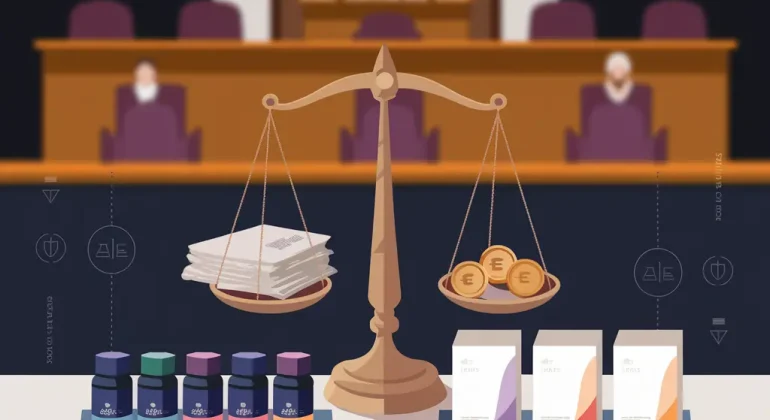Unfair competition and parasitism remain dynamic areas of intellectual property law, continuously shaped by evolving case law. Recent decisions in French courts underscore the nuanced legal landscape, offering valuable insights for businesses navigating these challenges. This article explores recent relevant cases, focusing on distinctions from infringement, damage assessments, statutes of limitations, and the presumption of harm, while addressing economic consequences such as workforce poaching.
The commercialization of products, a distinct approach from infringement: Likelihood of confusion and the “Product Range Effect” – Cour de cassation, Chambre civile 1, 25 May 2023, n°22-14.651
In a recent case, the French Court affirmed that marketing an entire range of products designed to imitate a competitor’s can constitute acts of both unfair competition and parasitism. These acts are distinct from infringement, particularly when deliberate efforts create a likelihood of confusion for consumers. This decision highlights the courts’ focus on the “effect of range”, where the imitation of an entire line magnifies the competitive harm.
Victims of such practices now have dual recourse—an action for infringement alongside unfair competition claims—provided they can establish distinct facts supporting each claim. This dual strategy strengthens the enforcement of intellectual property rights.
Assessing damages in unfair competition cases: A proportional and tailored approach – Cour de cassation, Chambre commerciale, 5 June 2024, n°23-22.122
This decision clarified the framework for calculating damages in unfair competition cases. The court emphasized that damages should reflect the undue advantage gained by the infringer, adjusted to account for the respective market volumes of the parties involved. This ensures a proportional remedy aligned with the victim’s actual harm, avoiding excessive awards.
Additionally, the court rejected a constitutional challenge to Article 1240 of the Civil Code, affirming its compatibility with constitutional rights and freedoms.
This decision reinforces the importance of meticulously quantifying the infringer’s financial gains while balancing equitable restitution for the victim.
Statutes of limitations in unfair competition actions: clarity on timeframes – Cour de cassation, Chambre commerciale, n°18-19.153
In this case, the court addressed the statute of limitations for unfair competition claims. While such actions often involve ongoing misconduct, the five-year limitation begins when the victim becomes aware or should reasonably have become aware of the acts in question. This approach balances the need for legal certainty with the realities of discovering illicit practices.
Companies should diligently monitor their markets to identify potential infringements promptly, ensuring timely legal action.
Presumption of harm in unfair competition and denigration cases: easing the burden of proof – Paris Court of Appeal, October 4th 2023, n°21/22383
The Paris Court of Appeal’s ruling reiterated that acts of unfair competition or denigration inherently presume harm to the victim. Whether the damage is economic or moral, the mere establishment of unfair practices suffices to presume injury, obviating the need for exhaustive proof.
This presumption facilitates swift remedies for victims, enabling them to focus on mitigating business impacts without extensive evidentiary requirements.
Economic consequences, workforce poaching and business disruption : the Case of mass recruitment – Cour de cassation, Chambre commerciale, April 13th 2023, n°22-12.808
A striking example of the economic fallout from unfair competition is the poaching of a competitor’s workforce. In a significant case, the court deemed the large-scale recruitment of key personnel—constituting a substantial portion of managerial staff—to be a deliberate tactic causing operational disarray. Such actions were classified as unfair competition due to their disruptive intent and effects.
Businesses affected by mass recruitment strategies can seek legal redress, particularly when such actions undermine their operational stability.
Conclusion
The evolving jurisprudence surrounding unfair competition and parasitism underscores the judiciary’s commitment to protecting fair business practices. Key developments highlight the courts’ nuanced approach to addressing product mimicry, tailored damage assessments, clear limitation periods, presumptions of harm, and economic impacts like workforce poaching. By staying informed and adopting proactive strategies, businesses can effectively safeguard their intellectual property and market position.
At Dreyfus, we provide you with a team of recognized experts to:
- Identify acts of unfair competition and parasitism.
- Develop tailored legal strategies to protect your interests.
- Represent you effectively before the competent courts.
Contact Us Today
Do not let unfair competition harm your business. Reach out to Dreyfus for personalized advice and protect your rights with an effective strategy.
Join us on social media!

